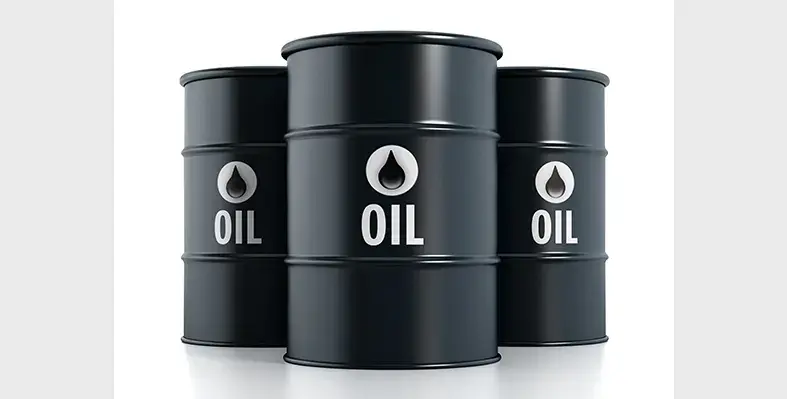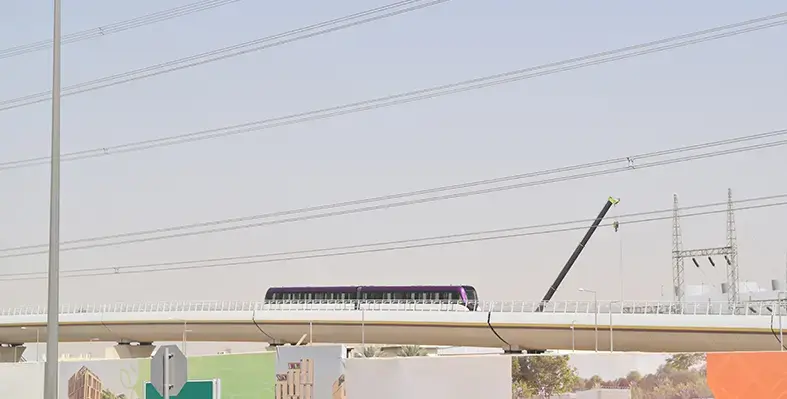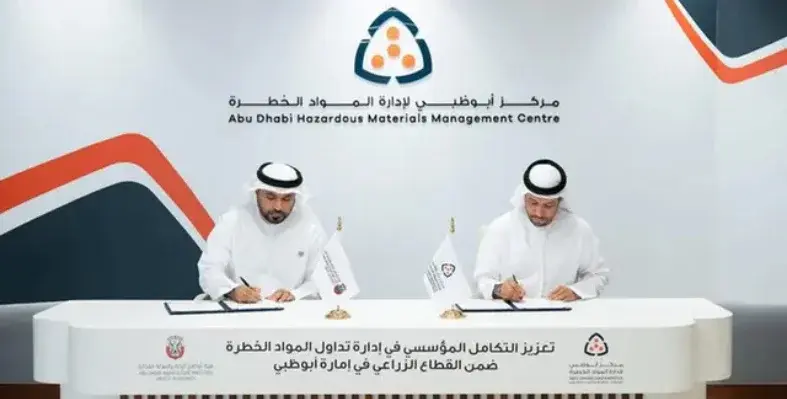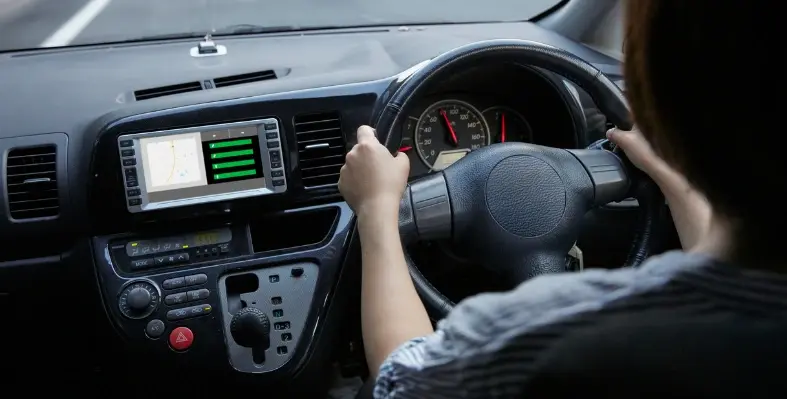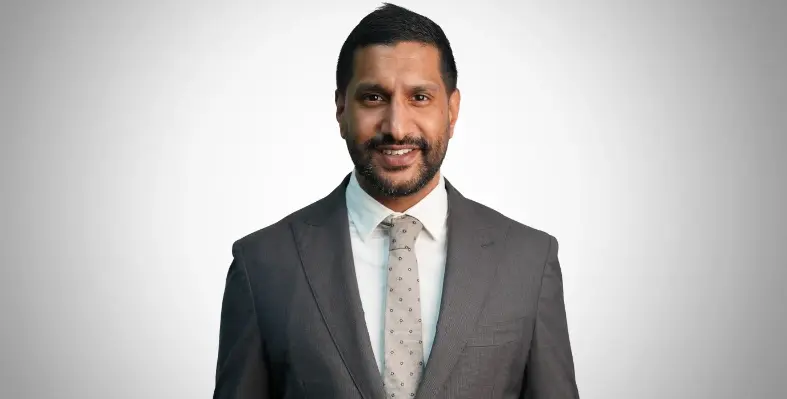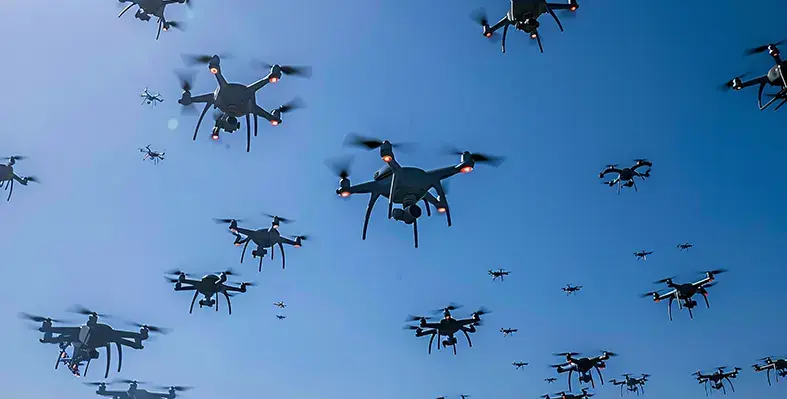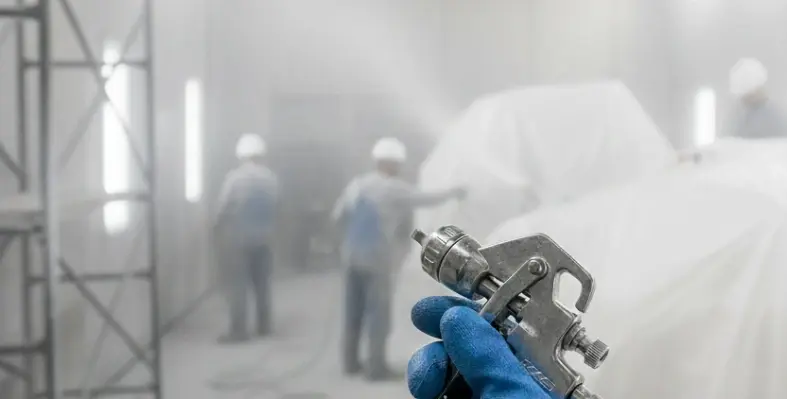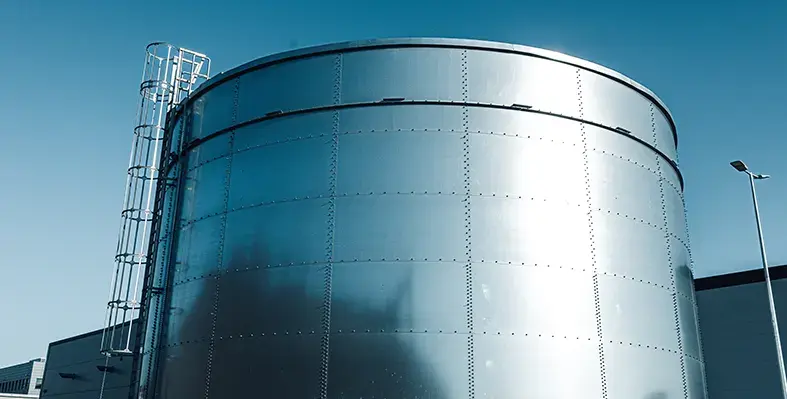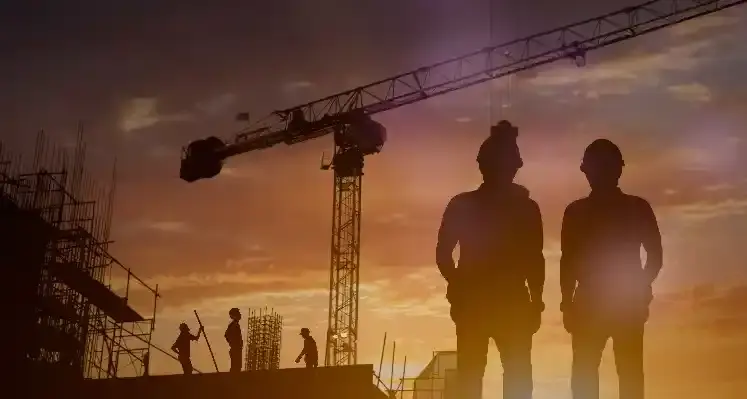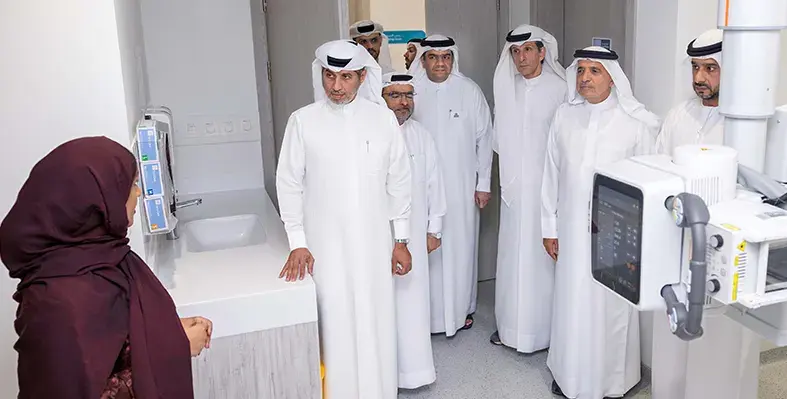Regional Coverage
Regional Coverage
- Details
- Louise Waters
- Middle East
- Region: Middle East
- Date: 2nd December 2025
- Year: 2025
Dubai has tightened up regulations relating to the trading, manufacture, supply, storage and transport of petroleum products, in line with global best practices
The resolution was issued by His Highness Sheikh Hamdan bin Mohammed bin Rashid Al Maktoum, Crown Prince of Dubai, Deputy Prime Minister and Minister of Defence, in his capacity as Chairman of The Executive Council of Dubai, in a bid to curb illegal trading, mitigate environmental impact, and safeguard lives, property, and public safety.
Provisions of the resolution apply to all entities engaged in these activities across Dubai, except for companies exempted by a UAE Cabinet decision.
The Dubai Supreme Council of Energy is now responsible for overseeing petroleum trading activities in the emirate. Its duties include setting rules on competition and market concentration, approving technical standards and procedures for trading, storage, transport, sale, and use of petroleum, and ensuring compliance with health, safety, and environmental requirements.
The Council also issues, renews, and amends permits, determines the number and locations of fuel stations, approves standards for transport vehicles, storage facilities, and household gas cylinders, and identifies areas within the emirate where the trading of petroleum products is prohibited, in coordination with the relevant authorities.
The resolution prohibits any person from engaging in petroleum trading activities in the emirate without authorisation from the licensing authority. Such activities may only be carried out after the source of the petroleum materials has been verified and documentation confirming acquisition from a Council-approved company has been submitted.
According to the resolution, violations of petroleum trading rules incur fines up to a maximum of one million dirhams.
The Supreme Council of Energy has the power to cancel permits, temporarily close facilities for up to six months, revoke commercial licences, and seize, destroy, or re-export petroleum materials and vehicles that do not comply with the rules.
- Details
- Middle East
- Region: Middle East
- Date: 1st December 2025
- Year: 2025
- Details
- Middle East
- Region: Middle East
- Date: 1st December 2025
- Year: 2025
- Details
- Matthew Hayhoe
- Middle East
- Region: Middle East
- Date: 1st December 2025
- Year: 2025
The memorandum of understanding, signed by H.E. Khalfan Abdullah Al Mansoori, Acting Director General of the Abu Dhabi Hazardous Materials Management Centre, and H.E. Dr. Tariq Ahmed Al Ameri, Acting Director General of the Abu Dhabi Agriculture and Food Safety Authority (ADAFSA), will hope to establish a framework for best practices in hazardous material handling and management
Both organisations will contribute to the comprehensive framework, which will include joint initiatives, streamlined regulation, and technical data and information exchange.
ADAFSA acting general director, H.E. Dr. Tariq Ahmed Al Ameri, said shortly after signing the MoU, "Through this partnership, we will work to develop integrated systems for hazardous materials management, streamline regulatory procedures, and provide a safe environment for farmers, livestock breeders and producers.
"This will contribute to improving operational efficiency, enhancing the quality of agricultural and food production, and strengthening its competitiveness in the markets."
Several strategic initatives are expected to follow the MoU; potential avenues include joint research, digital transformation projects, and environmental schemes. It follows the establishment of the Abu Dhabi Hazardous Materials Management Centre in 2023, and its more recent strategic pivot.
H.E. Khalfan Abdullah Al Mansoori, Acting Director General of the Abu Dhabi Hazardous Materials Management Centre, concluded, "The signing of this MoU represents a strategic step that strengthens Abu Dhabi’s efforts to build an integrated system for hazardous materials management... managing the circulation of these materials in accordance with international standards reduces operational risks and enables investment institutions to operate within a stable and reliable regulatory environment, supporting Abu Dhabi’s competitiveness and attracting more high-quality investments."
- Details
- Sania Aziz
- Europe
- Region: Europe
- Date: 28th November 2025
- Year: 2025
The EU’s Vision Zero initiative, aiming for zero fatalities and serious injuries on European roads by 2050, has brought road safety into sharp focus.
While infrastructure improvements and driver training remain important, the spotlight has shifted to standardising vehicle safety technology. This is the aim of the EU General Safety Regulation (GSR), a comprehensive framework mandating advanced safety features in new vehicles.
For Europe’s largest asset-based logistics company, Girteka, the results are already evident. The GSR was introduced to tackle the human error factor, which accounts for up to 90% of road accidents, and to make vehicles safer for both occupants and Vulnerable Road Users (VRUs) such as pedestrians and cyclists. Its phased implementation began in July 2022 for new vehicle types with basic advanced systems, progressing to all new registrations in July 2024, requiring a full suite of eight mandatory Advanced Driver Assistance Systems (ADAS) on trucks and buses, including blind spot detection, advanced emergency braking (AEB), lane-keeping assistance, intelligent speed assistance, and driver fatigue monitoring.
Eurostat reports that in 2024 there were over 4 million goods vehicles registered in the EU, with vehicles over 30 tonnes completing 83.1% of total freight transport in tonne-kilometres. HGVs under two years old accounted for 20.2% of road freight, highlighting the sector’s rapid fleet renewal. Manufacturers including Volvo, Scania, Mercedes-Benz, DAF, and MAN have embraced the regulations, incorporating ADAS technologies that were previously optional.
Real-world impact
Scania noted that its trucks already had “most of the required safety assistance technology,” while DAF and Volvo confirmed compliance and projected further advancements in active safety technology. Anna Wrige Berling, Traffic and Product Safety Director at Volvo Trucks, said, “Looking further ahead, trucks will become more intelligent and more active when it comes to safety, with more features that intervene rather than just inform,” emphasising that drivers remain “the most important safety system in the truck.”
Girteka’s experience demonstrates the real-world impact of these regulations. Since July 2024, the company has added over 2,400 GSR-compliant trucks to its fleet, with plans for up to 8,000 more by 2026. Internal data shows a 10% reduction in accidents within a year, particularly in low-speed manoeuvres, small collisions, and blind spot incidents, the very scenarios the new ADAS technologies were designed to address.
Dainius Augutis, Transport Function & Support Department Manager at Girteka, said, “The EU's GSR is a powerful market signal that pushes safety technology from a premium add-on to a universal standard. The collaboration between fleet owners like Girteka, who provide the data and demand, and manufacturers, who provide the engineering, is what makes Vision Zero achievable.”
Beyond metrics, the human impact is profound. Drivers benefit from safer conditions and lower stress, communities face reduced risks, and clients experience fewer disruptions. By combining regulation, advanced technology, and comprehensive driver training, Girteka shows that safety excellence is inseparable from operational excellence. The company’s results underline that well-designed regulations and proactive fleet investment can accelerate safety innovation, offering a blueprint for the future of safer, smarter logistics across Europe.
- Details
- Sania Aziz
- Middle East
- Region: Middle East
- Date: 26th November 2025
- Year: 2025
Penta Global, a UAE-based EPC construction company, has released a new report titled Mind Matters in Construction: The State of Mental Health and Wellbeing in the UAE, highlighting the need for a more coordinated and standardised approach to worker wellbeing across the industry.
The construction sector contributes more than 9% of the UAE’s GDP and employs over 1.8mn workers, most of whom are expatriates. Despite its scale, Penta Global’s report finds that mental health remains an underaddressed area of worker welfare, even as awareness and initiatives continue to grow.
The report notes that untreated mental illness leads to at least 37.5mn lost productive days annually across the GCC, amounting to US$3.5bn in economic losses. It also references research showing that construction workers who work beyond eight-hour shifts are 2.7 times more likely to report symptoms of depression.
Sujay Nair, Executive Director at Penta Global, said: “This report takes an in-depth look at the mental health realities of the construction workforce. There is a clear growing recognition of employee mental wellness as a strategic priority in the UAE and globally. It highlights the progress made but also the need for change, shared accountability, and sustained attention to the wellbeing of the people building the UAE’s future. So, we are calling on the industry to come together and make the change together to foster a culture of care in construction.”
The study highlights uneven access to wellbeing programmes, with major contractors investing significantly in safety and mental health support, while smaller subcontractors often lack formal frameworks or dedicated budgets.
Government-led reforms, including the National Strategy for Wellbeing 2031, the 2024 Mental Health Law, and the Dubai Health Authority’s Mental Wealth Framework—are accelerating improvements. Abu Dhabi has reported a 30% rise in mental health treatment uptake since 2022.
Penta Global aims to shift the industry focus from awareness to action, urging the sector to increase wellbeing data and transparency, collaborate on unified standards, and prioritise prevention over reactive responses. By enhancing data, strengthening industry-wide collaboration, and addressing root causes of stress and fatigue, the UAE construction sector can set a global benchmark for sustainable and human-centric development.
- Details
- Louise Waters
- Middle East
- Region: Middle East
- Date: 24th November 2025
- Year: 2025
ADNOC, Technology Innovation Institute (TII) and ASPIRE, have launched a pilot project to test and deploy coordinated drone fleets for rapid aerial disaster monitoring, in a move toward integrating autonomous systems into live emergency operations
Under the agreement, signed during Abu Dhabi Autonomous Week 2025, TII working in partnership with ADNOC and supported by ASPIRE, will pioneer a system that provides ADNOC’s Crisis Management Center with real-time aerial intelligence during emergency situations. The initiative integrates autonomous, long-range, and swarm-based drone operations into one unified framework.
Drones stationed at ADNOC sites will be able to take off and stream live video directly to headquarters. Wider monitoring and long-range incident response will be handled by long-range autonomous drones launched from ADNOC’s network of unmanned aerial vehicle (UAV) hubs as well as smaller drones, linked back to ADNOC’s headquarters, enabling coverage across the country. In the event of large-scale incidents, fleets of autonomous drones can also be rapidly deployed via a mothership to scan extensive areas within a matter of minutes searching for stranded people and offering them connectivity and informational support.
By combining these capabilities, the project will allow ADNOC to reduce response times, increase situational awareness and minimise risk to frontline personnel. The collaboration could transform how critical infrastructure operators across the UAE and beyond safeguard their people and assets.
“Emergencies demand speed and clarity, and this collaboration is about delivering both. By combining ADNOC’s operational expertise with ARRC’s advanced robotics, we are showing how coordinated drone systems can provide immediate, actionable insights when they matter most. For Abu Dhabi, this is not just a pilot; it is an example of how applied R&D can turn deep tech into life-saving solutions that redefine resilience in critical industries,” said Andrew Strefford, executive director at ASPIRE.
“What we are building with ADNOC is a coordinated, multi-layered system that integrates autonomous, long-range, and swarm operations into one seamless framework. By plugging directly into ADNOC’s Crisis Management Center, we are validating technologies that could be scaled across the wider energy and utilities sectors,” said Prof. Enrico Natalizio, chief researcher of TII’s Autonomous Robotics Research Center.
“ADNOC continues to leverage advanced technologies including drones and robotics to enhance the safety and efficiency of our people and operations. Through this partnership with TII and ASPIRE, we will explore how coordinated drone fleets can be deployed to provide real-time intelligence across our value chain and better protect our people and assets,” said Khaled Alblooshi- vice president, Digital Projects and innovations, ADNOC.
- Details
- Sania Aziz
- Europe
- Region: Europe
- Date: 20th November 2025
- Year: 2025
SHOWA has introduced ChemRest CC700, a new glove developed to solve a long-standing safety challenge in high-risk sectors: achieving dependable chemical resistance and strong cut protection without sacrificing dexterity.
Workers in industries including mining, chemicals, oil and gas, and heavy construction are routinely exposed to sharp edges and hazardous liquids. Until now, employers have typically faced a trade off between thick chemical resistant gloves that restrict movement or lighter cut resistant gloves that fail to provide sufficient protection from liquids. CC700 has been engineered specifically to eliminate this limitation.
The glove features an 18 gauge seamless HPPE knit liner that delivers a close, flexible fit. This is paired with a double dipped nitrile coating and a rough textured palm that enhances grip in oily or wet environments. The design improves durability, control and comfort while helping reduce the hand fatigue that often results from wearing chemical protective gloves for long periods.
ChemRest CC700 is certified to EN 388:2016 cut protection at Level E (ANSI A5) and EN 374 1:2016 Type A chemical resistance. This makes it a genuine dual protection solution for today’s demanding workplaces. Safety is further supported by an orange indicator yarn embedded in the liner, which makes damage or wear visible more quickly.
“Employers have long faced the dilemma of protecting their teams against both chemical and cut hazards without forcing them to compromise on performance,” said Tony Lynch, Vice President EMEA & USA, SHOWA. “ChemRest CC700 is the first glove in its class to deliver robust protection on both fronts while maintaining the dexterity needed for precise tasks. It not only improves safety but also simplifies PPE selection and inventory management for our customers.”
By removing the need for multiple glove types on site, CC700 helps streamline PPE training and reduces the risk of workers selecting the wrong protection in fast paced environments. Available in sizes from S to XXL, it has been developed with diverse workforces in mind and is suited to mineral handling, chemical treatment, painting, spray workshops and drilling tasks.
The launch of CC700 reinforces SHOWA’s standing as an innovator in industrial hand protection. By integrating advanced cut resistant yarns with proven chemical barrier technologies, the company continues to push safety standards forward for high risk industries.
- Details
- Louise Waters
- North America
- Region: North America
- Date: 19th November 2025
- Year: 2025
Sherwin-Williams Protective & Marine has won two energy industry awards for its next-generation industrial thermal insulative system Heat-Flex Advanced Energy Barrier (AEB), which not only offers excellent thermal efficiency but also eliminates costly and dangerous corrosion under insulation (CUI)
They include a 2025 Gulf Energy Information Excellence Award for Best Coating/Corrosion Advancement Technology and a 2025 Vaaler Award from Chemical Processing. The Gulf Energy Information Excellence Awards recognise the energy industry’s leading innovations and thought leaders, while the Vaaler Awards, established more than 50 years ago by Chemical Processing, recognise products and services that dramatically improve the operations and economics of chemical processing plants.
Heat-Flex AEB works by building a thick film of highly insulative material on to assets required to maintain operating temperatures up to 350°F (177°C), with excursions to 400°F (204°C). The thermal insulative system retains process heat inside the applied assets, allowing them to continue operating even in extreme environments. It also reduces burn risk for employees working in close proximity to hot assets.
The thermal insulative system rivals the in-service thermal performance of traditional mineral-based insulation systems, due to their tendency to absorb and trap moisture that infiltrates their exterior cladding. This moisture dramatically reduces the insulating capacity of the insulation and contributes to the acceleration of CUI. Heat-Flex AEB maintains thermal consistency and will remain at that same level of insulating capacity throughout its service life.
“We engineered Heat-Flex AEB to replace the bulky mineral-based insulation that’s traditionally used on storage tanks, process vessels, valves, fittings and piping to retain process heat,” said Neil Wilds, global product director, CUI/Testing, Sherwin-Williams Protective & Marine.
“This replacement thereby removes the corrosion zone between traditional insulation and the substrate, eliminating the potential for CUI to form by default. Winning two big industry awards for the technology is a testament to the system’s ability to reduce costs associated with corrosion, improve carbon footprints and enhance efficiencies for operators in the energy industry.”
Traci Purdum, editor-in-chief of Chemical Processing said Sherwin Williams’ Heat-Flex AEB thermal insulative system “represents the kind of breakthrough thinking that not only solves today’s operational challenges but also sets new standards for safety, efficiency and sustainability in chemical processing.”
- Details
- Sania Aziz
- Middle East
- Region: Middle East
- Date: 17th November 2025
- Year: 2025
UAE's Ministry of Human Resources and Emiratisation (MoHRE) has outlined five essential safety requirements that all workers must follow at job sites, stressing that adherence to protective measures is not simply procedural but a critical necessity to safeguard workers and those around them.
MoHRE stated that workers must wear a helmet, safety vest, protective footwear, safety goggles, and ear protection against noise, according to a report by Gulf News.
These requirements form part of an integrated occupational health and safety framework aligned with Federal Decree-Law No. 33 of 2021 regulating labour relations, its executive regulations, and related ministerial decisions. The law also sets out a full range of preventive measures to be implemented at workplaces and labour accommodations.
MoHRE emphasised that the UAE places strong importance on creating a safe and attractive work environment, supported by proactive legislation governing workplace safety and labour accommodation. “Occupational health and safety is a top priority for the ministry, which strictly enforces the law against any violations,” MoHRE said, highlighting initiatives such as the Wage Protection System, which safeguards workers’ rights and ensures timely salary payments. The ministry added that strengthening health and safety practices enhances the UAE’s global competitiveness, boosts productivity, and supports a stable skilled workforce that drives economic growth.
Key safety rules
The report noted that MoHRE has identified four official channels for reporting occupational safety violations: the call centre (600590000), the MoHRE smart application, the official website, and the ministry’s verified social media platforms.
The Occupational Health and Safety Manual requires employers to provide appropriate protective equipment to prevent work-related injuries, illnesses, and fire hazards, and to comply with all preventive measures issued by the ministry. Companies must display detailed safety instructions in Arabic and other languages where necessary, in visible areas of the workplace, along with warning signs near hazardous locations.
Employers must also appoint qualified first-aid supervisors, maintain fully equipped first-aid kits, and ensure adequate fire prevention and firefighting tools suitable for their operations. They are required to regularly assess workplace conditions to ensure sufficient protection for workers and take practical steps to reduce or eliminate risks.
The guidelines further highlight precautions against falling objects, sharp tools, high temperatures, flammable materials, compressed gases, and electrical hazards.
- Details
- Sania Aziz
- Middle East
- Region: Middle East
- Date: 14th November 2025
- Year: 2025
Penta Global, a leading player in the energy and construction sectors based in Abu Dhabi, is taking a pioneering stance on the mental health and well-being of blue-collar workers, an area that has long been overlooked in the industry.
Under the stewardship of executive director Sujay Nair, the company has made decisive moves to place people at the heart of its operations, urging the broader sector to move beyond compliance into genuine care for workforce welfare.
Traditionally, the focus within construction has been on health, safety, and environmental compliance, which are essentials for industry accreditation and operational soundness.
However, as Nair notes, there is still a considerable gap when it comes to mental well-being.
Sparked by thought leadership at a British Safety Council event, Nair and his team recognised this imbalance and responded by commissioning a comprehensive report on mental health in the construction sector, particularly concerning blue-collar workers.
The research process was revealing. Penta Global discovered significant data concerning the mental health of workers in the UAE, which were mostly collected via major firms and government-driven initiatives.
Over the past three years, the UAE government has enacted policies specifically focused on mental health, providing a strong foundation, but there remains much to build upon.
To bring attention to their findings and to inspire collaborative industry action, Penta Global hosted a roundtable during ADIPEC this year.
The session brought together stakeholders from leading organisations, government entities, and multinational firms.
Surprisingly, it emerged that while individual companies were implementing well-being programmes, there was little cross-industry communication or centralisation of best practices.
“We haven’t got that communication to have a centralised kind of policy which addresses these issues,” Nair observed, underscoring the need for a coordinated approach.
A collaborative approach
Beyond research and dialogue, Penta Global brought creativity to advocacy through their event booth, which featured a punching bag competition.
For every punch, the company pledged a donation to a local mental health initiative, blending fun physical activity with vital fundraising and awareness.
This approach speaks to the company’s ethos of focusing not only on compliance but also on positive engagement and long-term change.
Physical activity, notes Nair, is well-proven to enhance mental well-being, and this tie-in made the abstract more accessible and actionable.
The challenges are multifaceted. There are deeply rooted stigmas, language barriers, and fears of job security that deter workers from voicing concerns.
Nair stresses the need for education and open conversations, suggesting that integrating mental health into routine “toolbox talks” could be one practical step forward.
“If we can come together as an industry,” Nair asserts, “we can really drive meaningful change. And I think that’s the most important thing that came out [from the roundtable discussion].”
Looking ahead, Penta Global plans to share the outcomes of their roundtable widely and continue engaging with both industry leaders and social enterprises.
The goal is to drive policy toward preventative approaches rather than reactive ones, making mental health a shared responsibility.
By leading these efforts, Penta Global not only enhances its own culture but also sets a precedent for the entire sector to follow.
- Details
- Louise Waters
- Middle East
- Date: 13th November 2025
- Year: 2025
ENOC Group has opened a new ENOC Medical Fitness and Occupational Health Services Centre (EOHSC) in Jebel Ali, in collaboration with Dubai Health, to support the health and wellbeing of its employees and the local industrial sector
The new centre will deliver advanced medical fitness and occupational health screenings across the Group. The range of occupational health services offered includes pre-employment medical examinations, periodic health assessments, medical surveillance programmes for workplace hazards, vaccinations, health screenings, and wellness initiatives tailored to industrial workforce requirements. The Centre will also serve as a hub for visa-related medical services, facilitating the streamlining of administrative processes for employees across the sector.
Hussain Sultan Lootah, acting CEO at ENOC Group, said, “The launch of the new ENOC Medical Fitness and Occupational Health Services Centre underscores our unwavering commitment to the health, safety, and well-being of all our employees, as we strive for a productive, healthy, safe and secure work environment for all. The collaboration with Dubai Health reinforces our shared vision of creating safer, healthier work environments for both ENOC employees and the wider industrial community in Jebel Ali, aligning with Dubai's commitment to workplace safety.”
Khalifa Baqer, chief operations officer at Dubai Health, added, “The new Medical Fitness and Occupational Health Services Centre represents collaboration across Dubai’s sectors and reflects our vision of fostering healthier communities through preventive and diagnostic care. This partnership supports the well-being of the workforce in vital industries, enhances their quality of life and productivity, and demonstrates our commitment to building an integrated healthcare system that advances health for humanity.
“We look forward to this clinic playing an active role in contributing to a safe and sustainable work environment for the workforce in Jebel Ali.”
